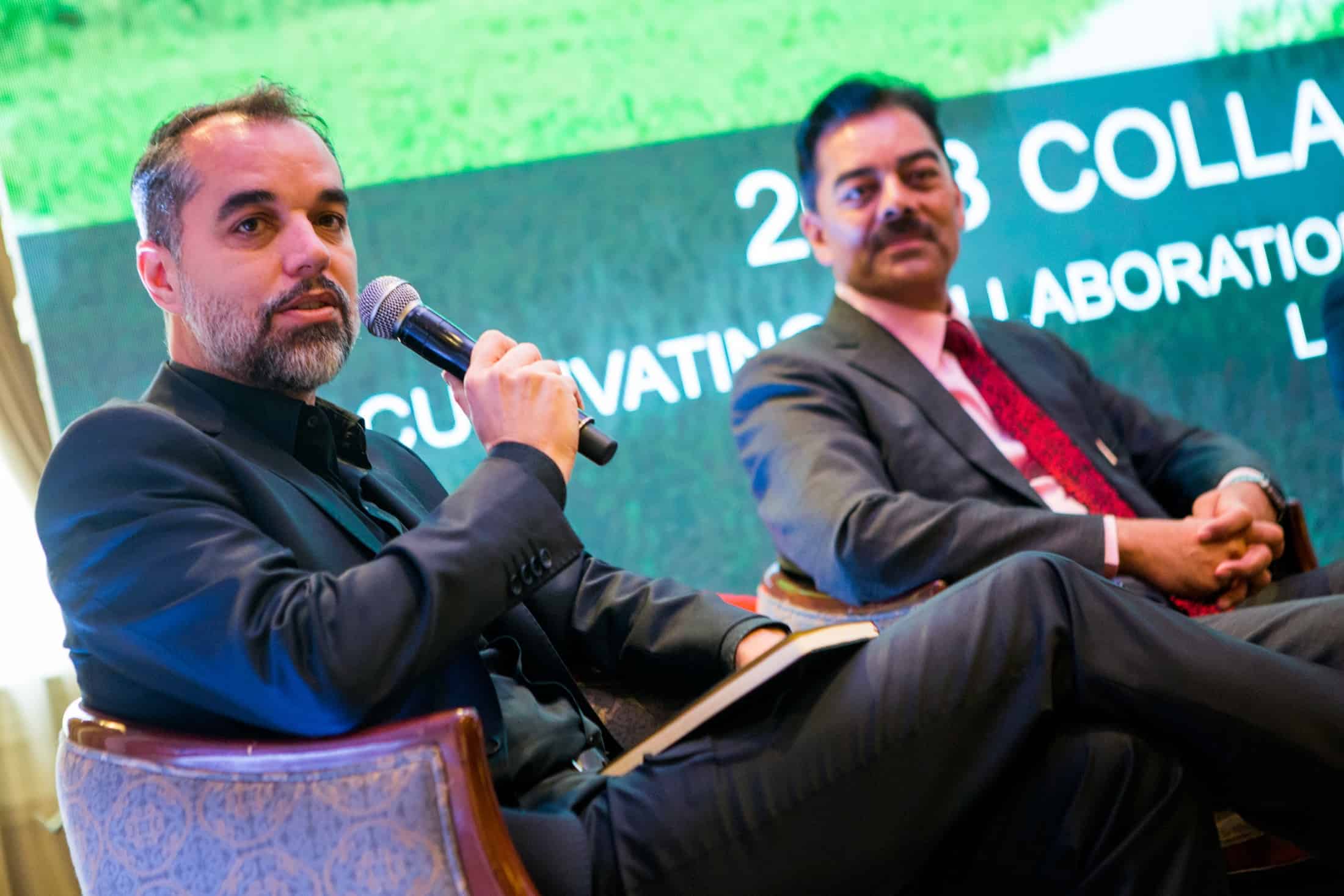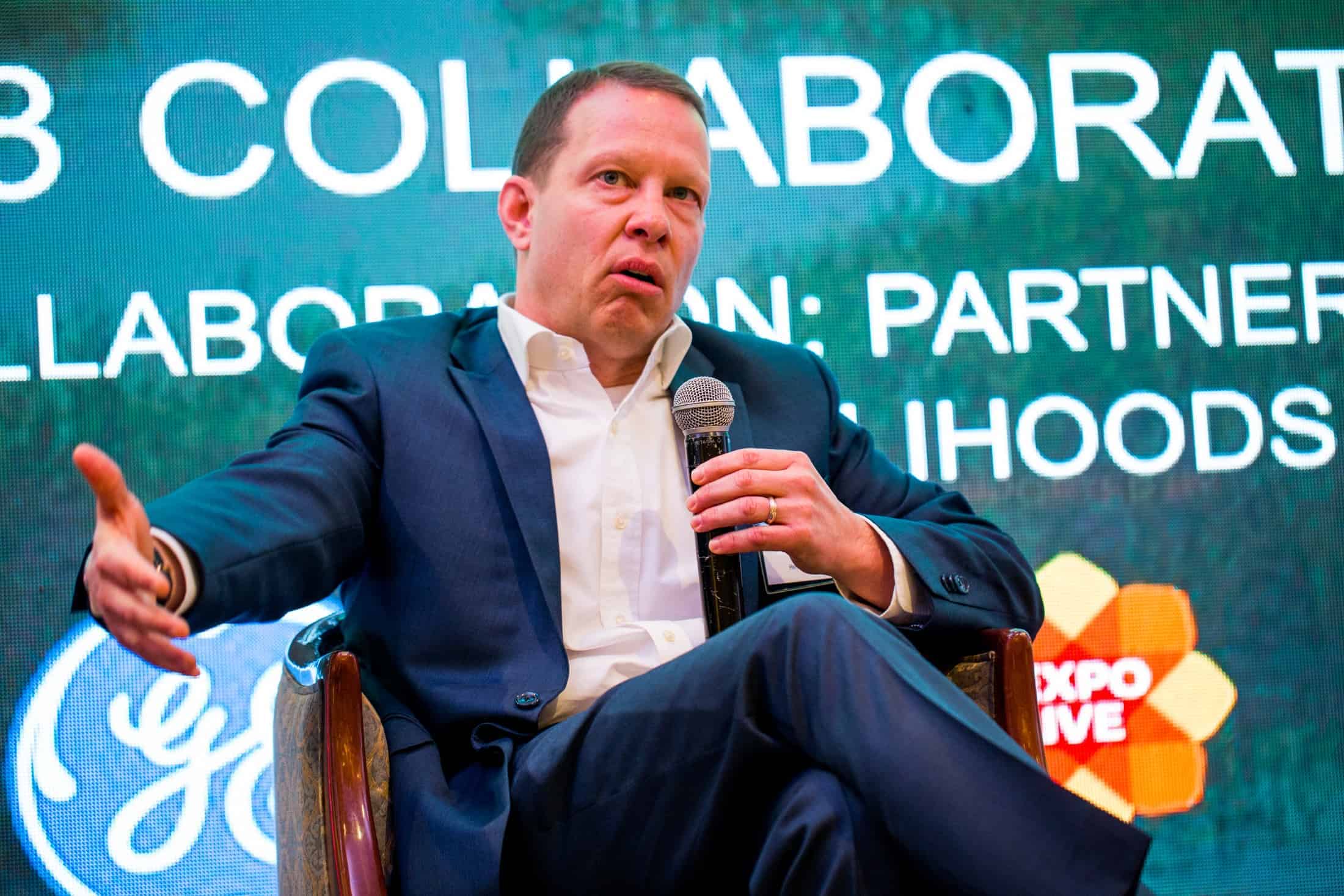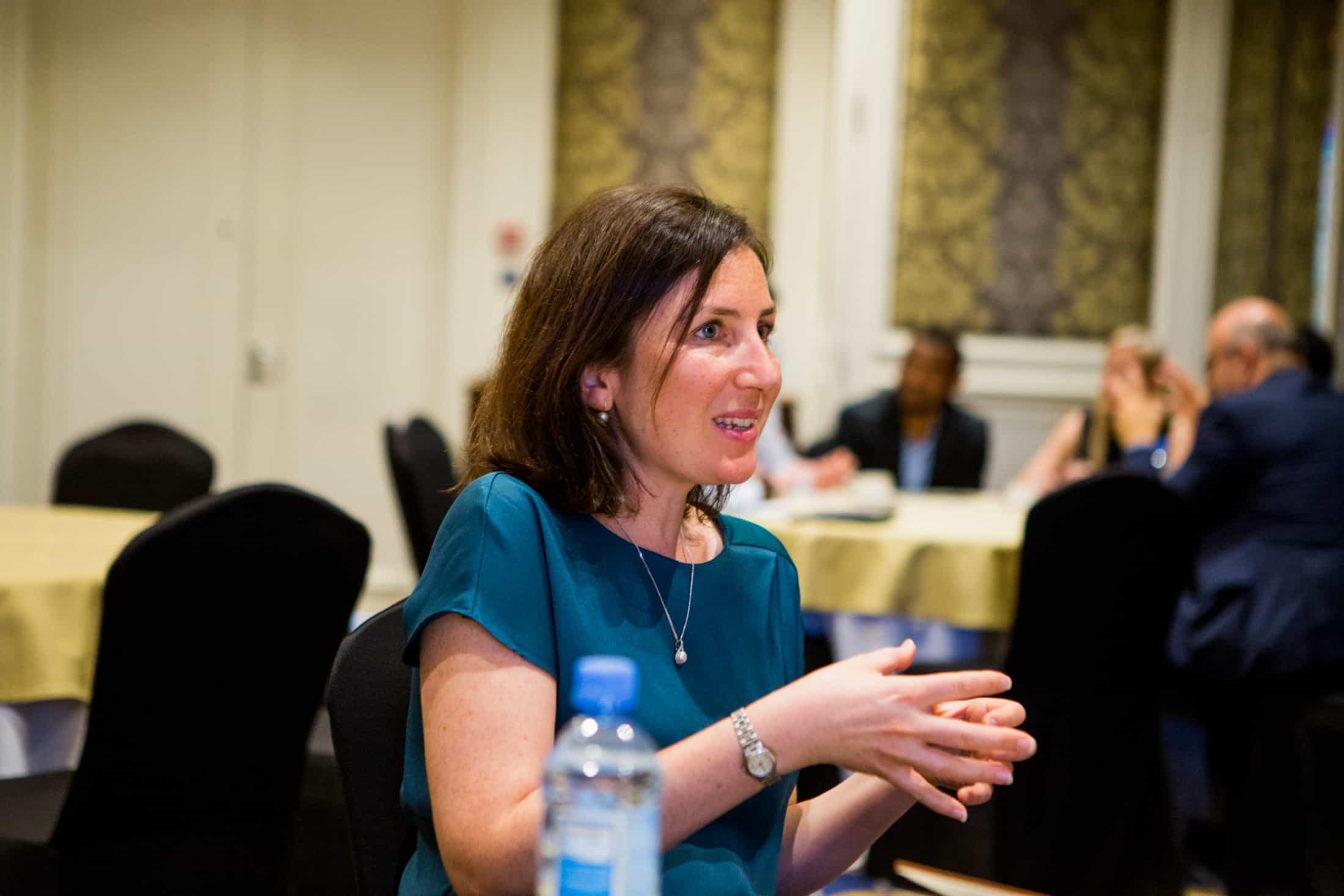Delivering for the Future of Smallholders: Seven Takeaways from Acumen’s Fifth Annual Collaboration Summit

- Blog
- Agriculture
In January, Acumen convened more than one hundred corporate leaders, social entrepreneurs, and impact investors in Nairobi for our fifth annual Collaboration Summit. The goal of the event, made possible with the support of EY, Dow, Dubai Expo, GE and Sainsbury’s, was to discuss and share examples of how these unique stakeholders are redefining aspects of their business to make a positive impact on the lives of smallholder farmers.
Smallholders typically live in geographically remote locations, which can pose big challenges to reaching customers at the market and pricing goods at competitive rates. And on top of difficulties related to sales and distribution, smallholders face more and more hurdles related to climate change.
Here are some key themes we heard at the event from business leaders who are working to build hope and economic security for smallholders across the globe.
1. Build a supply chain which fully integrates farmers for consistent, quality supply for your consumer.
Jerome Perez, Head of Sustainability at Nespresso, started the opening plenary panel at Acumen’s Collaboration Summit by talking about the relationship between a farmer and a big corporation, and the ways in which a corporation must redefine aspects of their business to address the challenges smallholders face. He asked, “How do you put the farmer at the center of the organization in a way that also satisfies your consumer? We believe the only way to have a consistent and quality supply for your consumer, is to have full integration of farmers within the supply chain.”
In order to fully integrate farmers, capacity building and fair pricing are just the beginning. It is important to think about introduction of sustainable technologies, supporting the formation of producer associations for increased negotiation power, and diversifying livelihoods for farmers to reduce vulnerability to commodity price fluctuations. Often this is too much for one corporation to do, and this is where partnership is essential.

2. Invest for the long term, and be patient.
Jeff King, Director of Sustainability, CSR, and Social Innovation at Hershey’s shared, “Support for farmers is a long-term story, and therefore a balancing act for most corporations. You can’t calculate ROI after a quarter. Building a resilient supply chain requires a long-term view of our partnerships. It’s based on trust that you don’t gain in a quarter, but only after a few harvest seasons. ”
For corporations it is important to think about how they can invest in the long term and what changes need to happen internally to support a long term investment horizon, when the benefits of such investment will emerge.

3. Building trust with farmers is key to mutually beneficial relationships.
Companies interested in working with farmers directly are often met with skepticism, a result of the mistreatment farmers have faced for years.
Marta del Rio, CEO and Founder of Wasi Organics, which produces premium snacks from super foods sourced from farmer associations in Peru, shared how building trust with farmers has played a key role in her company. Building this kind of trust takes time and patience on the company’s behalf. Marta explained, “We share that we are working with them to get back their dignity and have a better future.” This type of trust building overtime will build your credibility in the farmer’s eyes and will pave the way for partnerships.

4. Partnership across ecosystem stakeholders is key to sustainability.
Vimal Shah, Chairman of Bidco Africa, shared that in addition to building trust with farmers, gaining the long-term business benefits of creating a sustainable supply chain that is locally led requires partnerships that bring in expertise, capital, and the ability to get things done on the ground. “We need to do more than give aid, it’s about farmers’ skills and local value addition. The private sector needs to partner with government, and bring in technology and talent through meaningful and mutually beneficial partnerships. This is how we’ll build strong local supply chains to take up the numerous untapped opportunities in a sustainable manner.”

5. Corporations can help farmers secure large and more reliable incomes by securing their market access.
Laura Falk, International Development Manager of Sainsbury’s described how they are working to establish long-term relationships with local producers. Laura shared that at Sainsburys they are increasingly focused on bringing farmers together and in some cases establishing long-term agreements through the supply chain. She added, “By securing their markets, farmers are able to increasingly focus on and invest in their own businesses, add more value to their products and grasp an additional portion of the cake.”

6. Technology is only part of the solution.
Hillary Miller-Wise, Founder and CEO of Tulaa, a mobile commerce business that enables farmers to access inputs, finance, information and markets in a virtual marketplace, shared how partnerships have helped them leverage technology to help farmers interact with markets more effectively. “There’s a misconception that technology can solve everything and is free. Technology isn’t the hardest part. It’s all of the other analogue pieces you need to make the transactions work. As a tech company, we constantly ask ourselves: how far away from the tech should we go to make the transactions happen? Partnerships are critical to filling those gaps and to operating efficiently.”

7. Farmer-centric capital is required for growth.
Bernard Kivava, CEO of Juhudi Kilimo, a company that provides East African farmers with loans to access high-quality agricultural assets to increase their incomes, spoke of the need to have ‘’farmer-centric’ capital that addresses seasonal farmer incomes while addressing agriculture related risks. To meet the financing needs of farmers, it is critical to create a distinction between working capital and long-term equity to build infrastructure, as well as the innovative types of capital required for social enterprises focused on farmers to scale.
Acumen remains committed to bringing the insights, the capital, and the partnering opportunities needed to help address the challenges facing smallholder farmers. These are just a few insights that emerged from our Collaboration Summit discussions, which have continued to unfold as participants explore opportunities to work together. Please share your own work and insights in engaging with smallholder farmers.
